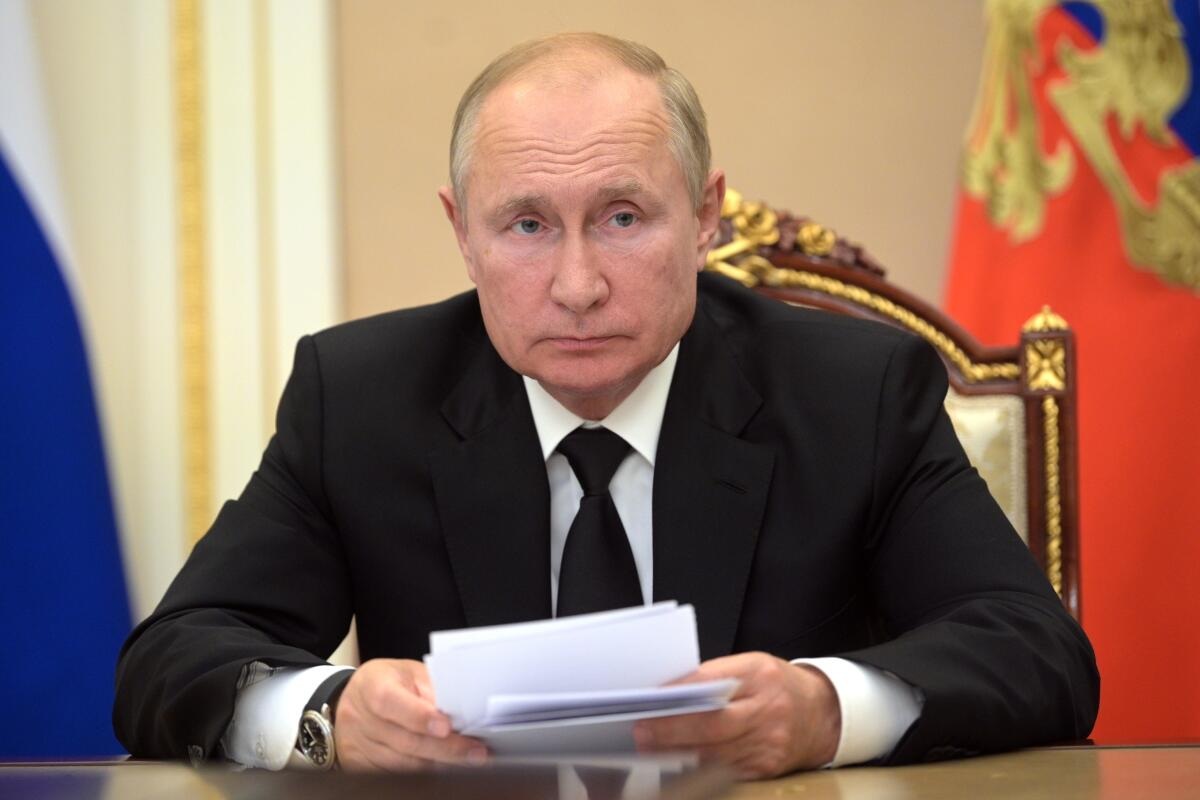On July 11, 2025, the Office of the Prosecutor of the International Criminal Court (ICC) received a formal complaint from the advocacy group For Ukraine, Their Freedom and Ours!.
The organization urged the ICC to issue immediate arrest warrants for Russian President Vladimir Putin and eight other senior Russian officials.
The complaint accuses them of orchestrating the systematic plundering of Ukrainian museums, an act that international law classifies as a war crime.
Context: The Largest Cultural Plunder in Europe Since WWII
The advocacy group’s complaint highlights the unprecedented scale of cultural theft committed by Russia during its ongoing conflict with Ukraine.
According to the association, Russia’s military aggression has resulted in “the largest spoliation of cultural heritage in Europe during an international armed conflict since World War II.”
The group describes this as part of a broader “cultural war” launched by Russia since its initial invasion of Ukraine in 2014, aimed at erasing Ukrainian identity and heritage.
The complaint emphasizes that the looting is not random or incidental but rather “systematic, widespread and organized,” with directives coming from the highest echelons of the Russian government.
This assertion underscores the gravity of the allegations and the scale of the cultural destruction and theft.
Legal and Political Framework Behind the Looting
A key element cited in the complaint is the Russian federal law passed on March 18, 2023.
It legalized the incorporation of collections from 77 Ukrainian museums into Russian museum catalogs.
This law applies to territories under Moscow’s control, including the Donetsk, Luhansk, Zaporizhzhia, Kherson regions, and Crimea, which Russia annexed in 2014.
Ukraine’s Ministry of Culture reports that as of July 2024, fewer than 1.2 million museum artifacts remain in Crimea, suggesting a massive depletion of cultural assets from the peninsula.
This depletion reflects a broader pattern of cultural appropriation and theft across the occupied territories.
The International Legal Perspective: War Crimes and Cultural Heritage
Under international law, particularly the 1954 Hague Convention for the Protection of Cultural Property in the Event of Armed Conflict, the pillaging of cultural property during war is prohibited and can constitute a war crime.
The ICC has jurisdiction over such crimes, and the complaint calls for urgent legal action to hold the perpetrators accountable.
The petition argues that the deliberate removal and appropriation of Ukrainian cultural artifacts not only violates international humanitarian law but also represents an attempt to erase the cultural identity of the Ukrainian people.
This form of cultural genocide carries profound implications for Ukraine’s national heritage and collective memory.
Broader Implications for Ukraine and Global Cultural Heritage
The complaint to the ICC is part of a growing international effort to document and respond to the cultural destruction caused by the war in Ukraine.
Museums, cultural institutions, and governments worldwide have condemned the looting and called for the return of stolen artifacts.
The systematic theft of cultural property undermines Ukraine’s sovereignty and its ability to preserve and celebrate its history and identity.
Moreover, it sets a dangerous precedent for conflicts globally, where cultural heritage becomes a target for political and military objectives.
Challenges and Prospects for Justice
While the ICC’s involvement represents a critical step toward accountability, prosecuting such crimes poses significant challenges.
Gathering evidence in active conflict zones, securing cooperation from states, and navigating complex international legal frameworks require sustained diplomatic and judicial efforts.
Nonetheless, the complaint by For Ukraine, Their Freedom and Ours! signals a determined push by civil society and international actors to ensure that cultural crimes do not go unpunished.
Arrest warrants for top Russian officials would mark a strong message that the international community condemns not only the physical violence of war but also the destruction of cultural heritage.
Conclusion
The formal complaint submitted to the ICC on July 11, 2025, underscores the urgent need to address the systematic looting of Ukrainian museums by Russian forces.
By calling for the arrest of President Putin and other senior officials, the advocacy group highlights the scale and severity of this cultural plunder.
It frames it as a war crime of unprecedented magnitude in Europe since World War II.
This action reflects broader efforts to protect cultural heritage amid conflict and to uphold international law.
As the war in Ukraine continues, safeguarding the country’s cultural identity remains a critical front in the struggle for justice and historical preservation.
The international community’s response will be pivotal in determining whether these crimes are effectively challenged and whether stolen heritage can be restored to its rightful place.







